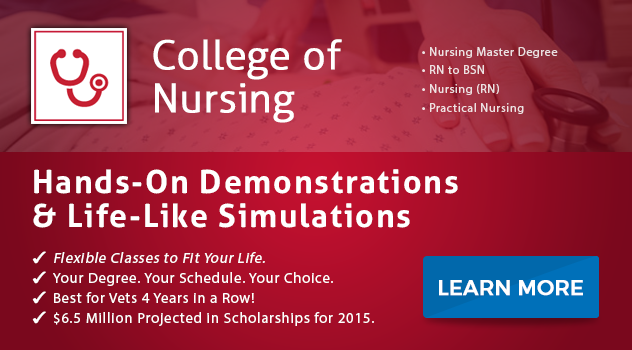How Long Will It Take to Get an MSN (FNP)?
Let's assume you're already a registered nurse with a bachelor's degree, and you've decided to commit to earning a master's degree in nursing. What's more, you've decided that you want to specialize in family nurse practitioner (FNP). More than likely, the question that's uppermost in your mind before you enroll is: how long will it take to complete the master's degree in nursing degree program?
Normally, colleges design programs for completion of a master's degree in two-three years. But these days, it is possible to get on a fast track and take an accelerated program that could get you on your way a lot faster.
Following are some things to consider, as you mull over whether enrolling in an accelerated program is a good option for you.
Accelerated Programs for Nurses
Accelerated programs for nurses and non-nurses seeking graduate nursing degrees abound, as the healthcare industry continually looks for ways to overcome the shortage of healthcare workers, including nurses and physicians. You probably know nurses who enrolled in accelerated master's degree programs and succeeded at them. No doubt some of these MSN-holding nurses have gone into leadership roles with their new degrees. Or perhaps they've used their master's credentials to become educators. Maybe one of these graduates was your inspiration for pursuing a specialization as a nurse practitioner.
While earning a master's degree in nursing will differ from the kind of training you received to become an RN, it will still be challenging. However, successful completion of your master's degree will enable you to apply for jobs at a higher level than you might have aspired to with an associate's or even a bachelor's degree. Concomitant with these jobs are usually higher salaries.
Earning Your Degree: Which Pace Do You Prefer?
However, two to three more years in higher education has a downside. While most nursing students continue to work as they earn their master's degree, many have to cut back on their commitment to their jobs until they complete their degrees. The study load can be intense and the instruction rigorous and you will need plenty of time to devote to study and reading.
Will this level of commitment work for you? Remember, you'll be juggling your responsibilities to your home and family. You'll have to determine if you have the support structure from family and friends that will allow you to make this commitment to earning another degree.
Can someone help you with small children so you can study? Will your employer allow you the time you need to go to class? Will you be able to cut back on your weekly commitment to your job so you can carve out study time?
One way that many nursing students achieve their goal of a master's degree is through cutting back on the traditional time it takes to earn the degree. An accelerated program helps nursing students work toward their degrees without a break, so they can finish in much less than two-three years. Facing a cutback in hours if you pursue your MSN? An accelerated graduate program will allow you to get back to work full-time quicker, so you can earn more. Resuming your former pay level could help you pay off sooner any debt accumulated toward graduate school.
Another advantage of an accelerated program is that the student may work at a rapid pace without a break. While that may sound daunting, some students actually find the terms or quarters more to their liking than the traditional but longer semesters.
What You Can Do With an MSN With an FNP Concentration
Nurse practitioners have come a long way since they were first trained in the mid-1960s as an answer to the shortage of family practitioners. NPs, also known as FNPs, receive rigorous training beyond that of a registered nurse, performing duties that were formerly the sole province of the family doctor, such as administering physical examinations, making diagnoses, treating illnesses, and prescribing medications, increasingly, they are working alone, rather than under the supervision of a physician.
They work in hospitals, industrial and occupational settings, in the emergency room or for urgent care, for public health departments, and in provider offices. They often focus on a particular field such as geriatrics, pediatrics, acute care, psychiatric, neonatal, or family practice.
While FNPs may have a bachelor's degree, they increasingly have masters and even doctoral degrees. Nurse practitioner is considered an ideal field for the RN who enjoys working hands-on with patients but wants to move up into a more responsible position with a higher salary.
Do you want to be an MSN nurse, specializing as a family nurse practitioner? If you want to earn a Master of Science in Nursing Degree, ECPI University offers this degree program at an accelerated rate. For more information about the program, connect with a knowledgeable admissions counselor today.
It could be the Best Decision You Ever Make!
DISCLAIMER – ECPI University makes no claim, warranty, or guarantee as to actual employability or earning potential to current, past or future students or graduates of any educational program we offer. The ECPI University website is published for informational purposes only. Every effort is made to ensure the accuracy of information contained on the ECPI.edu domain; however, no warranty of accuracy is made. No contractual rights, either expressed or implied, are created by its content.
Gainful Employment Information – Master of Science in Nursing
For more information about ECPI University or any of our programs click here: http://www.ecpi.edu/ or http://ow.ly/Ca1ya.




